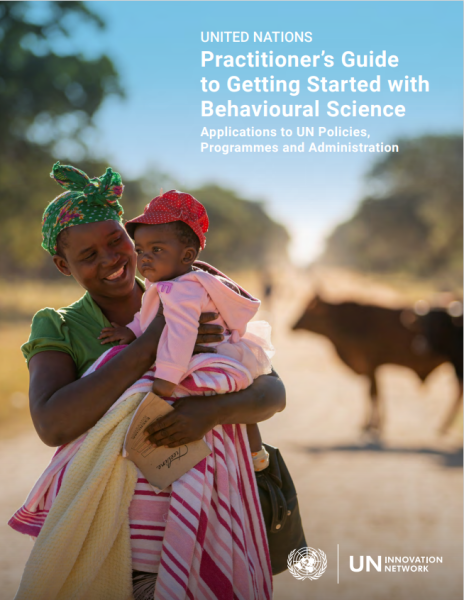UN Practitioner’s Guide to Getting Started with Behavioural Science

The UN’s mission and objectives are often critically linked to changing human behaviour. Behavioural science enables us to diagnose barriers preventing people from engaging in a certain behaviour, identify enablers that help people achieve their aims, and design and measure the impact of interventions on the basis of these understandings. In recognition of this potential to catalyse change, the UN Secretary-General has identified behavioural science as a core capability to promote a wider transformation of the UN and included it in the Quintet of Change. Behavioural science, alongside data, innovation and digital transformation, strategic foresight, and performance and results orientation, will strengthen the UN’s capacity to deliver on its mandates, including the Agenda 2030. Building on the 2021 Guidance Note on Behavioural Science and the UN Behavioural Science Report commissioned by the Secretary-General, this “Practitioner’s Guide to Getting Started with Behavioural Science” aims to provide a more detailed introduction to the application of behavioural science, with guidance on how practitioners can apply it to a UN Entity’s policies, programmes and administration.
